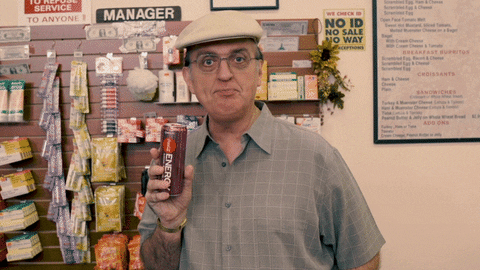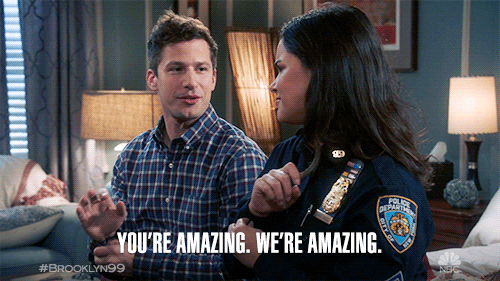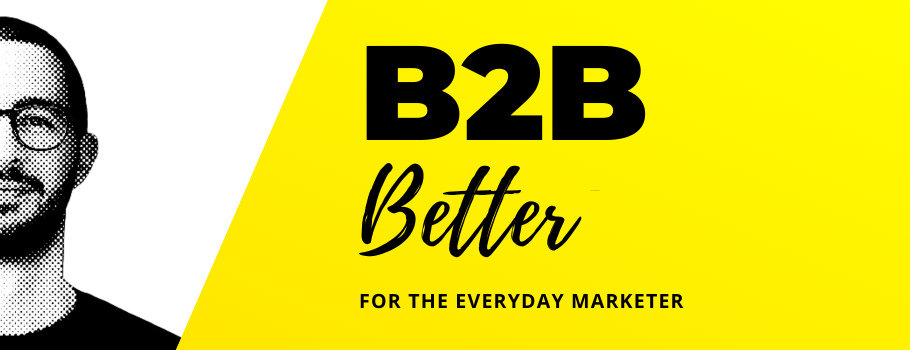Hi! 👋
In The B2B Bite, I break down the most interesting marketing stories into fun-size, actionable chunks to kick off your week.
Sent every Monday AM. Best enjoyed with coffee.
Sign up below for free.
Social Proof
😔 No Testimonial?
So, for much of my career, I've worked in enterprise B2B technology. Here's what that means for me:
Sales cycles can be suuuuper long. Like, longer-than-an-elephant's-gestation-cycle long;
Annual recurring revenue (ARR) is >$100k. Customer lifetime value (CLV) is... a lot;
Once a customer makes a purchase, they're going to be out-of-market for the foreseeable;
And the industry is - relatively - small. Thousands of potential customers, not millions.
One of the most effective levers in this type of context, at least from my experience, is conformity bias. Let me give you a definition of what I mean here.
Conformity is a social phenomenon where we change our behavior to become part of a bigger group or a trend. Basically, we change our behavior to be more like others.
What that means for us B2B marketers is that with so much cash on the line - and very little margin for error - customers want the confidence that a vendor is already working with their contemporaries and competitors.
In fact, according to a study by G2 Crowd and Heinz Marketing, 92% of B2B buyers are more likely to make a purchase after reading a trusted review.
In most cases, this is easy to exploit - just write a case study or record your existing customers saying something nice about you on camera. Like this.
But herein lies the rub. In certain industries, doing this type of activity is nigh on impossible. Why?
Sometimes it's because of privacy or security concerns - think government agencies. In others, sponsors could pay for the right to associate with a company, so why in heck's name would that same company give away the right to a vendor they're paying for a service? Or it could be as simple as a client not wanting to give away a perceived competitive advantage.
This makes a marketers job very tricky. How can you associate yourself with your clients without explicitly referencing to them as such?
Here's one idea.
😄 No Problem!
Start a podcast. And before you say it, I know what you're thinking.
"Oh, here we go. Another fluff-brained marketer recommending we devote our time and money to an oversaturated, hyped-up channel with no real method of accurate attribution."
Hear me out.
Yes, 3,000 new podcasts are being created every week. Yes, it is hard to measure the success of a podcast against revenue. But success comes down to how you frame the goal of starting a podcast in the first place.
When I started a podcast a few years ago for a B2B business, I wanted to achieve three things:
Associate myself with a customer-base who are notorious for saying "no" to conventional testimonial tactics;
Create something meaty that could be repurposed. A piece of hero content that could be spliced and diced across my blog, social media, newsletter and more;
Do something none of my competitors was doing. I wanted to zig into space no one currently occupied while everyone else zagged their way to snoresville.
Of these goals, #1 was the most important. All other attempts in gaining that social proof we so desperately needed had fallen on flat ears. Clients just weren't interested in entertaining the idea of a written case study or video testimonial that made us look like hot stuff.
And that's why the podcast worked. Because we flipped the intent on its head and made it about them.
With it, we were able to break down that big-o-wall of 'no' by inviting on customers to talk about the things they actually cared about. What were they working on right now? Where was the industry heading? How did they pull off that latest project?
No mention of our commercial relationship, just a good old-fashioned chinwag on the topics of the day that benefitted both parties.
For us, the 'halo effect' - a cognitive bias in which others developed positive feelings towards us based on the company we kept. For the customer, an opportunity to increase their personal status by talking about the things they cared most about.
Ultimately, we signed up six high-value customers to speak on just as many episodes who otherwise wanted nothing to do with any co-marketing effort at all.
🥡 Takeaway
In a high-end, enterprise-level solution or professional services environment, it's all about trust and awareness.
Yes, spending money on paid advertising can be beneficial in some contexts - like BOF, high-intent conversion content. But when your window of a sales opportunity is so small, counting wholly on your outbound strategy reaching a potential target client at just the right time can be almost a bottomless pit in which to throw your cash.
You need to find ways to make your customers come to you. In the few months that they're actively looking for your solution, it has to be your name that springs to mind. And that means investing in channels like premium, ungated content that is focussed on value, not vanity.
Oh, and if you're interested, I recorded a podcast that talks about how to get a podcast up and running on a shoestring budget. I know, pretty meta. Check it out here.
🍴 Nibbles
I'm a little embarrassed to admit it, but last year was the first time I realised burnout was more than just 'feeling tired'. Why? Because I experienced it first hand. By Christmas, I wasn't just running on fumes - I was pushing the car along the road after it had lost its wheels about five miles back.
It's changed my perception of mental health and how we can approach it as individuals and companies. That's why podcasts like David Self's 'Self Care' are so important. I really enjoyed his latest episode - "Let's Talk About Corporate Burnout (And How To Avoid It)" - and recommend a listen.One of my 2021 resolutions is to have more 'face-to-face' time with the marketers I meet online. Who said Zoom fatigue was a thing? This week I had a great chat with Sanya-Jeet Thandi who runs an awesome blog on brand strategy called 'Anthro'. Check it out here. And if you'd like to grab a virtual coffee to shoot the breeze on all things marketing, hit me up on Twitter. My DM's are always open.
...…and here’s my podcast
Every two weeks I sit down with a marketing leader to lean how they hit their goals by thinking outside the box - and dig into how this can be applied to other B2B businesses. Here are a few of my most recent episodes.
What it Takes to Build a Successful B2B Community w/ Christina Pashialis
Tell Me Why… You Need Pop Culture in B2B Marketing w/ Brianne Fleming
Building a 10,000 Strong B2B Email List from Scratch w/ Sean Blanda
How to Use Instagram to Promote People and Culture w/ Nicole Tabak
You can also find the B2B Better on Apple Podcasts and almost all other podcast directories.
And that's it! See you next week.




